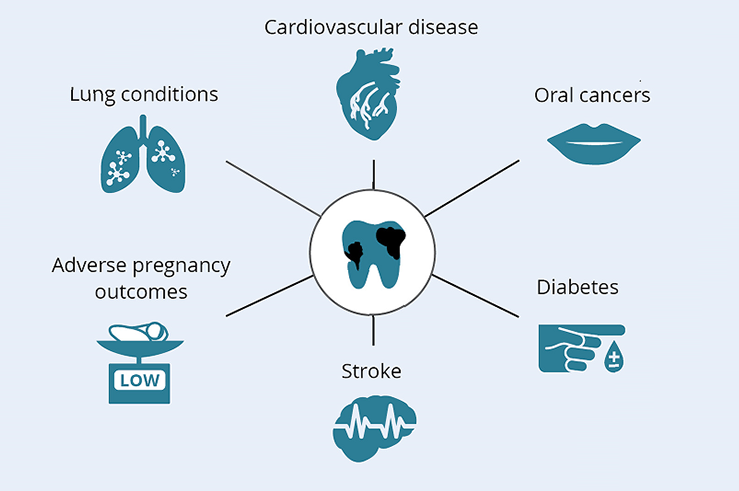Navigating Schizophrenia Causes Symptoms and Treatment Options.
 |
| Schizophrenia: Causes, Symptoms, and Treatment Options.// Pixabay |
Understanding Co-Occurring Disorders and the Importance of Support for Managing Schizophrenia.
Schizophrenia is a chronic and severe mental disorder that affects how a person thinks, feels, and behaves. It is a complex illness that can manifest in a variety of symptoms and can significantly impact a person's ability to function in daily life. In this article, we will explore the various aspects of schizophrenia, including its causes, symptoms, diagnosis, and treatment.
* Causes of Schizophrenia
The exact causes of schizophrenia are still unknown. However, research suggests that a combination of genetic, environmental, and brain chemistry factors may contribute to the development of the disorder. Some of the potential risk factors for schizophrenia include a family history of the illness, exposure to viruses or toxins in utero, and significant life stressors.
* Symptoms of Schizophrenia
Schizophrenia symptoms can vary significantly from person to person and may change over time. Some common symptoms of schizophrenia include delusions, hallucinations, disorganized thinking and speech, abnormal motor behavior, and negative symptoms (such as a lack of motivation or emotion). These symptoms can significantly impact a person's ability to function in daily life, including their ability to maintain relationships, work, or pursue hobbies.
* Diagnosis of Schizophrenia
Diagnosing schizophrenia can be challenging, as the symptoms can overlap with other mental illnesses. To diagnose schizophrenia, a mental health professional will conduct a comprehensive evaluation, including a review of the person's medical history, a physical exam, and a psychological assessment. The DSM-5 criteria are used to diagnose schizophrenia, and the presence of specific symptoms must be present for at least six months.
* Treatment of Schizophrenia
Treatment for schizophrenia typically involves a combination of medication, psychotherapy, and support services. Antipsychotic medications are often used to manage symptoms such as delusions and hallucinations. Psychotherapy can help people with schizophrenia learn coping strategies and improve their communication skills. Support services such as vocational rehabilitation, housing assistance, and peer support groups can also help people with schizophrenia manage their symptoms and improve their quality of life.
R E A D : 10 Warning Signs of Stage 4 Lung Cancer to Look Out For
 |
| Schizophrenia // Dreamstimes |
* Schizophrenia and Co-Occurring Disorders
Schizophrenia often co-occurs with other mental health disorders, such as depression, anxiety, and substance abuse. In fact, approximately half of all people with schizophrenia also have a co-occurring substance use disorder. This can make treatment more complex, as addressing both disorders simultaneously is essential for improving outcomes.
People with schizophrenia who have co-occurring disorders may require more intensive and specialized treatment, such as dual diagnosis programs that provide integrated care for both mental health and substance use disorders. These programs can address both disorders concurrently, which can help individuals achieve and maintain recovery.
* The Importance of Support for Schizophrenia
Support is crucial for people with schizophrenia, as the illness can be isolating and challenging to manage. Family members and loved ones can play a significant role in providing emotional support and helping people with schizophrenia access treatment and services.
Support groups can also be a valuable resource for people with schizophrenia, as they provide an opportunity to connect with others who understand what they are going through. Peer support groups can provide a sense of community and understanding that can be difficult to find elsewhere.
Additionally, community-based services, such as vocational rehabilitation and housing assistance, can help people with schizophrenia achieve independence and improve their quality of life.
* The Future of Schizophrenia Treatment
Research into schizophrenia is ongoing, and there is still much to learn about the causes and treatment of the disorder. However, recent advances in technology and medication have led to significant improvements in treatment outcomes.
Newer antipsychotic medications have fewer side effects than older medications, making them more tolerable for people with schizophrenia. Additionally, emerging treatments, such as transcranial magnetic stimulation (TMS) and virtual reality therapy, show promise for improving symptoms and quality of life for people with schizophrenia.
Schizophrenia is a complex chronic mental illness that requires ongoing treatment and support. While the disorder can be challenging to manage, with proper care, many people with schizophrenia can live fulfilling lives. It is crucial to seek help from a mental health professional right away if you or someone you love is experiencing symptoms of schizophrenia. Additionally, accessing support and community-based services can help people with schizophrenia achieve independence and improve their quality of life.
R E A D :
- The Healing Brew: A Comprehensive Guide to the Health Benefits of Tea
- Strategies for Sustainable and Successful Results
- Understanding Bladder Cancer Symptoms: What You Need to Know

:max_bytes(150000):strip_icc()/beets-5e0ac92040454a61a502fc8f7684eba1.jpg)



:max_bytes(150000):strip_icc()/apple-cider-vinegar_annotated-efa1261a10684527a9aed559fa78cb58.jpg)





